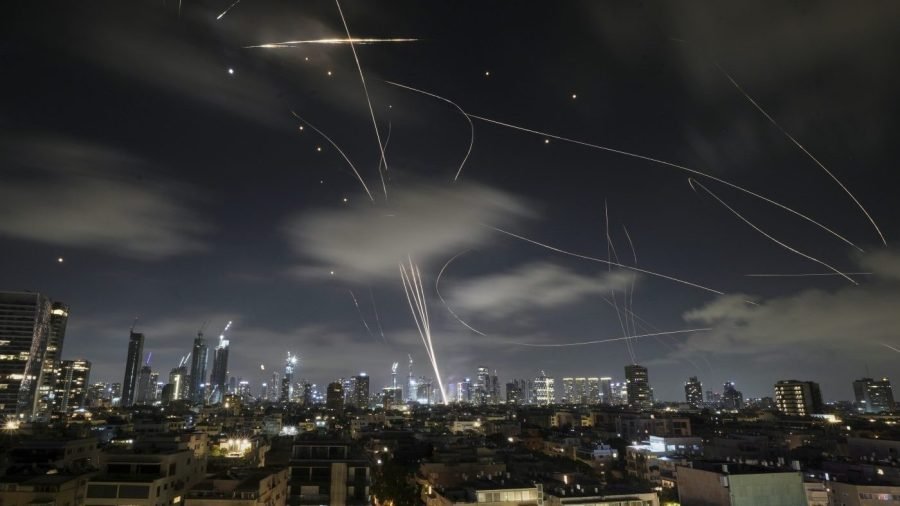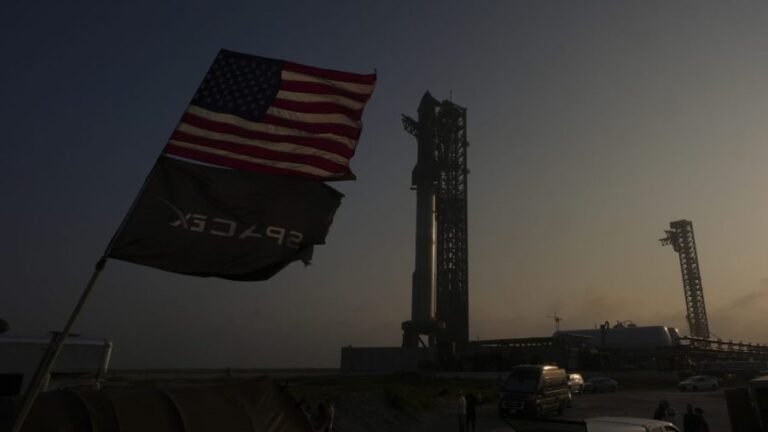
As Israel continues to pummel Iran, President Trump and his team confront three major issues.
First, should the U.S. continue to support the Israeli operation, both with materiel supplies and with defenses against Iranian missile and drone attacks? And, for that matter, should Washington defend Israel in the U.N. and veto any Security Council resolution that seeks to halt Israel’s attacks?
Second, should Washington support any effort on Israel’s part to effect regime change in whatever form it comes — including the assassination of Iran’s supreme leader, Ayatollah Ali Khamenei?
Third, should America enter the war in support of Israel? Israeli aircraft cannot carry the 30,000-pound Massive Ordnance Penetrator, the “bunker buster” bomb that could be dropped on the Fordo nuclear development site. Only American bombers can do so. Several B-2 bombers are currently stationed at Diego Garcia in the Indian Ocean and could reach any target in Iran. Having echoed Franklin D. Roosevelt’s 1943 demand for Germany’s “unconditional surrender,” should Trump order the bombers to hit the deep underground site?
It was Iran, not Israel, that initiated this conflict. For the last two decades, Khamenei has asserted that Israel “will not exist” within 25 years. He has repeatedly termed Israel a “cancer” — most recently in February 2024, when he called the Jewish State a “cancerous tumor” that must be destroyed. Other Iranian leaders have spoken of razing Israel to the ground and targeting major Israeli cities.
Indeed, two months after Khamenei’s most recent statement, on April 13, 2024, Iran fired about 300 missiles at Israel, ostensibly in retaliation for the Israeli bombing of the Iranian embassy in Damascus, Syria; there had been no direct attacks between the countries until then. It was only after that attack that Israel retaliated directly.
Israel has every reason to take the Iranian leadership at its word. No one took Hitler seriously when he called for the destruction of the Jews in “Mein Kampf,” or when he first took power in Germany in 1933. Khamenei is serious, and, given America’s commitment to Israel’s survival, the U.S. must take him seriously. Defending Israel against air attacks would be no different from America’s ongoing defense of that country in the face of continuous missile attacks by the Tehran-sponsored Houthis.
An Iranian nuclear capability therefore poses a threat not only to the Israeli government, but also to the Israeli people. No other state — not North Korea, not Russia — has threatened to wipe another people off the map. And given the threat to Israel’s very existence that an Iranian nuclear capability would pose — regardless of whether Iran acquires the bomb in six weeks, six months or six years — it would also be appropriate for Washington to let Israel finish off the job against Tehran’s nuclear project.
But regime change is another matter. It is unwise for Israeli Prime Minister Benjamin Netanyahu to call for the ayatollahs to be unseated. It would be even less wise for Washington to support him in that effort.
Regime change has worked in the past, but only when literally millions of American and allied forces on the ground defeated Nazi Germany and Imperial Japan. More recent attempts at regime change have ended in or will end in failure — not only America’s long wars in Afghanistan and Iraq, but also Russia’s war against Ukraine.
It is up to the Iranian people to overthrow their regime — not to outsiders whose efforts might actually unite the local population and strengthen their support for a regime they largely despise.
Finally, the White House should resist the temptation to authorize U.S. forces to attack Fordo or any Iranian target. It is true that even President Barack Obama promised never to let Iran acquire a nuclear weapon and stated that “all options” — including military — were “on the table.” Nevertheless, Washington could obtain “unconditional surrender” at the negotiating table, as long as Israel’s onslaught continues without interruption.
Iranian Foreign Minister Abbas Araghchi has asserted that Iran is “committed to diplomacy.” The White House should seize the opportunity for talks and demand that Iran completely dismantle its nuclear program.
Some would argue that Iran should be allowed to enrich uranium at low levels, at least until a so-called regional consortium establishes a joint international nuclear enrichment facility. Such a proposal essentially echoes the Obama approach, which, as the International Atomic Energy Agency’s recent censure of Iran demonstrates, was an abject failure. Iran would simply cheat again, as it has for 20 years. For that reason, the White House should accept nothing less than the total termination of Iran’s nuclear project.
However, for the U.S to bomb any target inside Iran is another matter. Better to leave it to the Israelis to figure out how to disrupt the activities at Fordo. A country that could paralyze Hezbollah by means of exploding pagers, and that has so deeply penetrated Iran that it has been able to wipe out the country’s top echelon of military officers and nuclear scientists, can surely devise some means of dealing with Fordo.
Of course Netanyahu wants to drag America into the war. He has spent decades trying to press Washington to join Israel in attacking Iran. He has not succeeded to do so in the past, and he should not succeed now.
Dov S. Zakheim is a senior adviser at the Center for Strategic and International Studies and vice chairman of the board for the Foreign Policy Research Institute. He was undersecretary of Defense (comptroller) and chief financial officer for the Department of Defense from 2001 to 2004 and a deputy undersecretary of Defense from 1985 to 1987.


